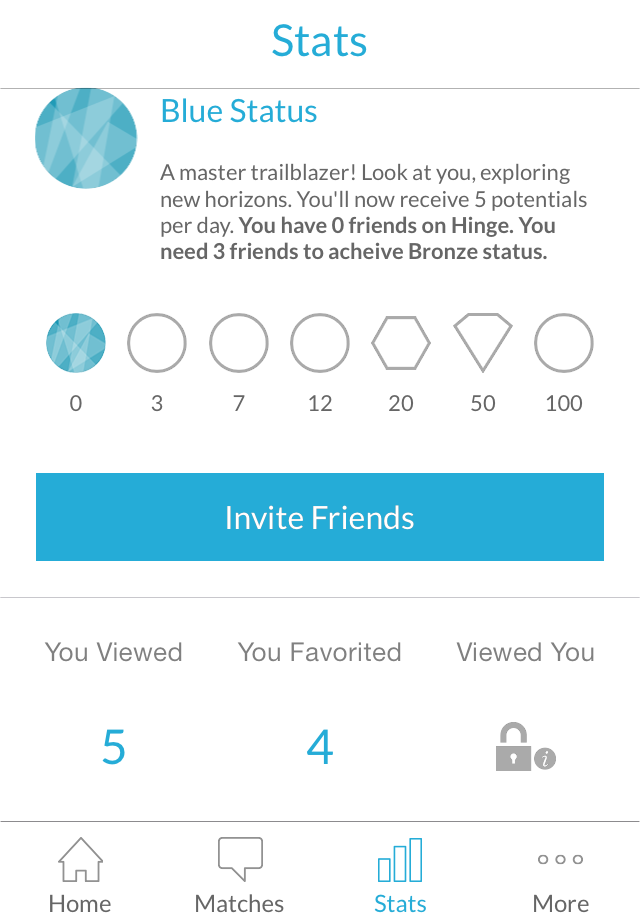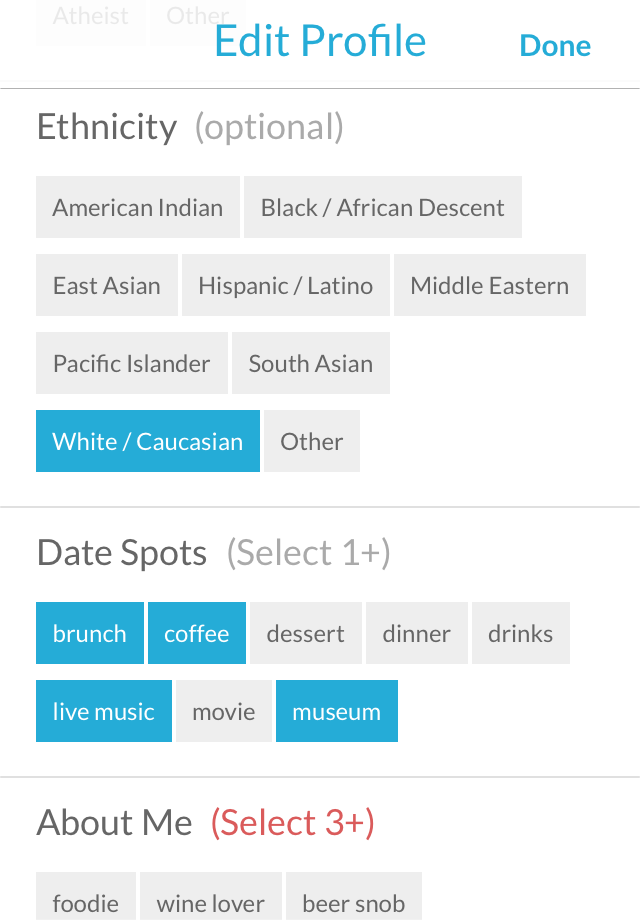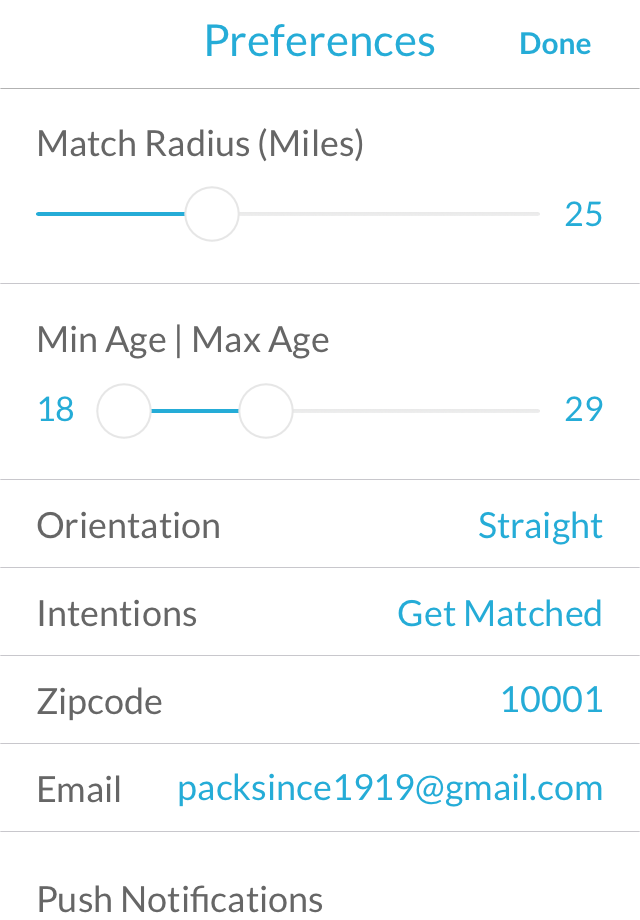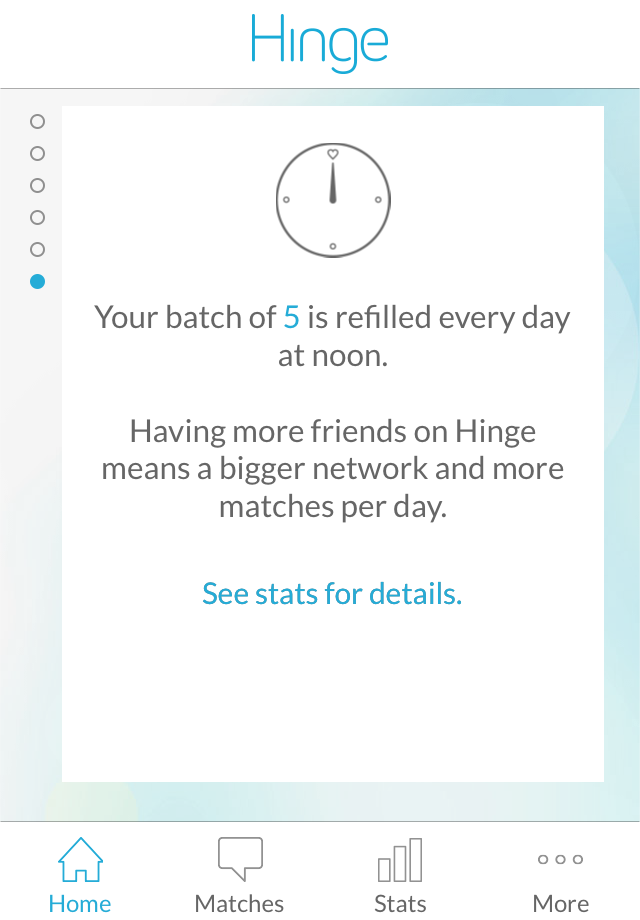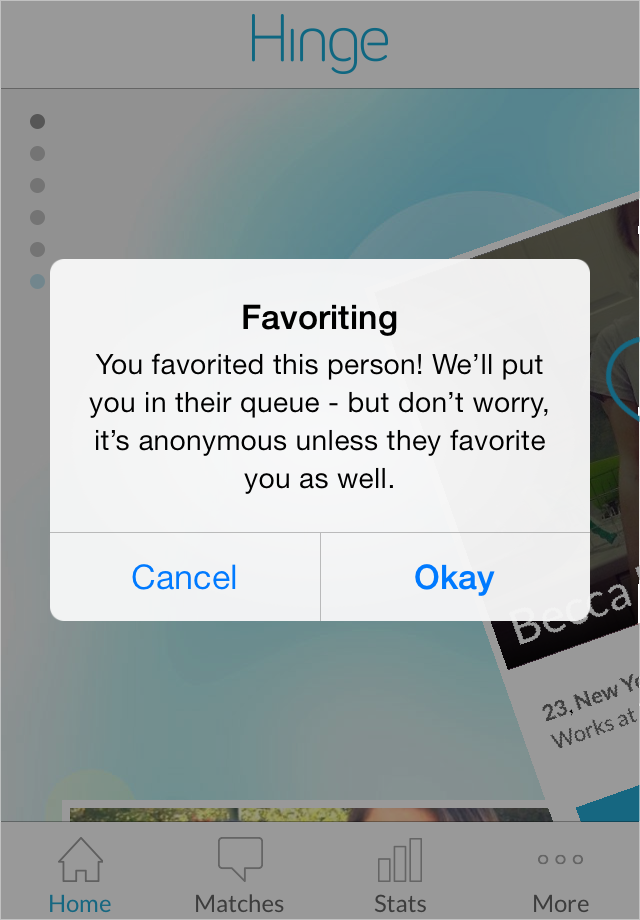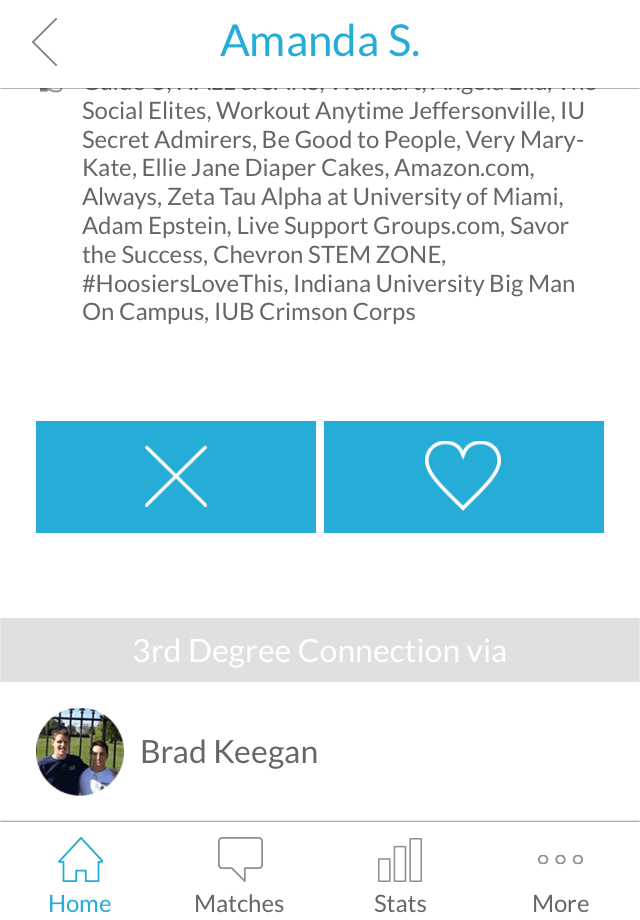
There is no shortage of dating sites out there at this point. While sites like Plenty of Fish or OKCupid insist on being able to navigate your bait through an ocean of options and hook it in on a promised match, other options have started to get more specific, banking on being able to better find you a catch in a stream. All of these services require you provide information about yourself and uses it to link you to someone with a similar set of data points. This is where things can fall flat because, well, people lie. Hinge believes it can find the true you not by asking you questions but by who you associate with – namely, your Facebook friends.
Why dip in to the social network site rather than take the traditional (as traditional as online dating can be, that is) means of matching?
Hinge believes it can find the true you not by asking you questions but by browsing your Facebook friends.
“The number one way people still meet today, despite the growth of online dating, is through friends. Your friends say a lot about you – your history, your interests, your socioeconomic status,” Hinge CEO Justin McLeod told us. You have a certain established rapport and trust with your friends. Hinge uses the good will you’ve built with your friends to help match you with those in your extended networks – friends of friends that you will have some comfort with because of mutual associations.
Though it would seem this approach would limit your possibilities, it’s more about quality than quantity for Hinge.
“While we only show our users 10 matches on average per day, our users indicate they’re interested in our suggestions over 40 percent of the time,” explained McLeod. “That’s a much higher percentage than what traditional dating sites or hookup apps report.” The average Hinge user, he claims, will have about 5,000 singles in their extended network and while 5,000 doesn’t sound like much when some sites claim millions of users to tout the possibilities, it’s also unlikely you need to go on a million dates to make a connection unless you have body odor issues or have a peg leg. Even then … peg legs can get you sympathy points, depending on how you acquire them.
Once you’ve linked your Facebook profile to your Hinge account, you offer up a limited bit of information before getting into the matchmaking process. You’ll provide your zip code and intentions – if you’re using the app to meet a match or just looking to see how it works – to start. Fine tuning occurs a bit later, with options for ideal age range and location. You can add some pre-made labels to apply to yourself as well to help fine tune the matching process, adding personality traits, favorite date spots, etc. These help narrow down the field for Hinge to play for you, but it does most of this work without you knowing.
Hinge only gives users 5 matches to look at per day. You can’t browse through people at will, sending off the same boiler plate message with a smiley face emoticon at the end and hope one of them replies. You’re shown just five people, and their profile and photos are available for you to view at will. (This is something that needs fixing, though. We’d like to see the ability to mark photos or information as private.) After checking them out, you either express your interest in them or ‘pass’ on them. The friend of a friend will only learn of your interest if they express interest as well.
The reason for the limited exposure to matches is two fold: First, it helps Hinge determine what you’re after: “We look through your extended friend network and then find people who are similar to the types you’ve liked in the past, but who are also likely to be interested in you as well,” said McLeod. “It sounds simple enough, but it’s quite complicated when you’re learning preferences such as occupation, education history, ethnicity and height – all at once.”
For comparison’s sake, if you went on Netflix and just started liking everything, it would probably come up with some weird suggestions. When it learns you over time, it offers those insanely specific categories that always seem to creepily know what you like. Hinge wants similar success when finding you dates.
The second reason for the five person per day limit is because too much of a good thing can be too much to handle. “Because we’re able to provide such high quality results, even 5-10 per day can seem overwhelming when you like 40 percent of the people we show you,” McLeod continued. “Every profile has personal details and interests pulled from Facebook, so our users typically spend more time reviewing suggestions than the superficial photo-only experience.”
In our use of the app, we can see why this is. There is a lot of information to look at with each potential partner, and about half of the ones we saw had some common ground that could make for an interesting date. Justin claims “We actually have people asking for fewer [matches]” because of the success rate of Hinge’s system.
Since Hinge … hinges upon your friends to help you find a match, we were surprised to find that actual Facebook friends couldn’t make suggestions. The app relies solely on the information you provide and what it gathers based on who you like or pass on; there is no option at the moment for mutual friends to send suggestions through Hinge, which seemed like a no-brainer. Hinge trusts your friends enough to use their network of friends to hook you up with but not enough to let them play matchmaker. Even just a simple feature like marking a match as recommended by a friend would be welcome, and possibly telling. Maybe you could regularly deny the suggestions of one friend because you don’t trust their taste.
From our time with Hinge, it seems like a decent way of finding a partner. The trust established with your inner circle used to establish a pool of potential matches makes sense, especially when you see how good the app seems to know your tastes right off the bat. The process of finding a match on a dating site can be a grind, and Hinge manages to handle most of the pitfalls found on bigger, less focused services. Matches are curated for you; there’s no connection or communication unless both people are interested; and there’s a foundation in place based on who you know and what you like. It all makes for what could be a great service.
Hinge is available for free for iOS devices. It is currently available in New York and San Francisco and will launch in Chicago on February 6.
